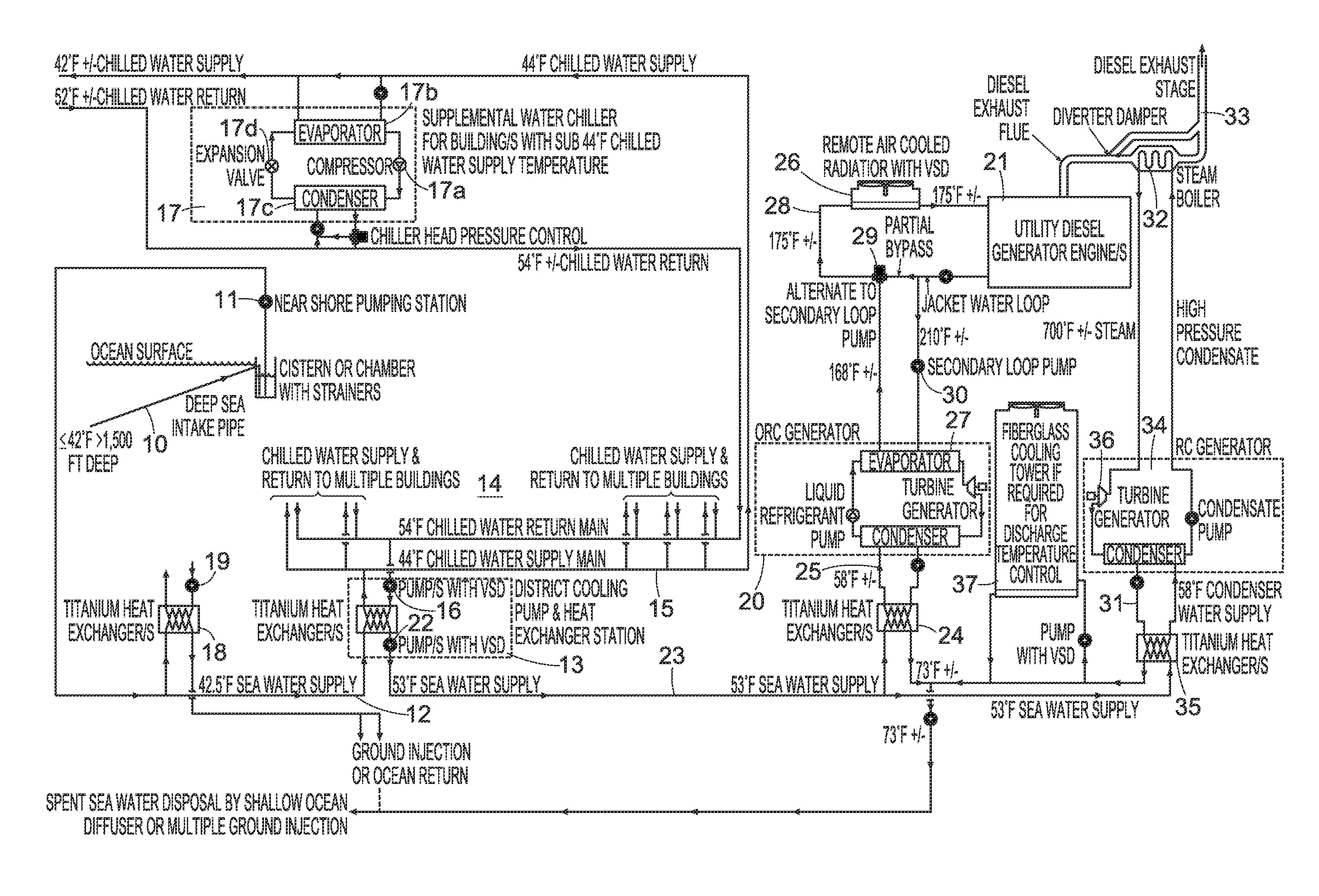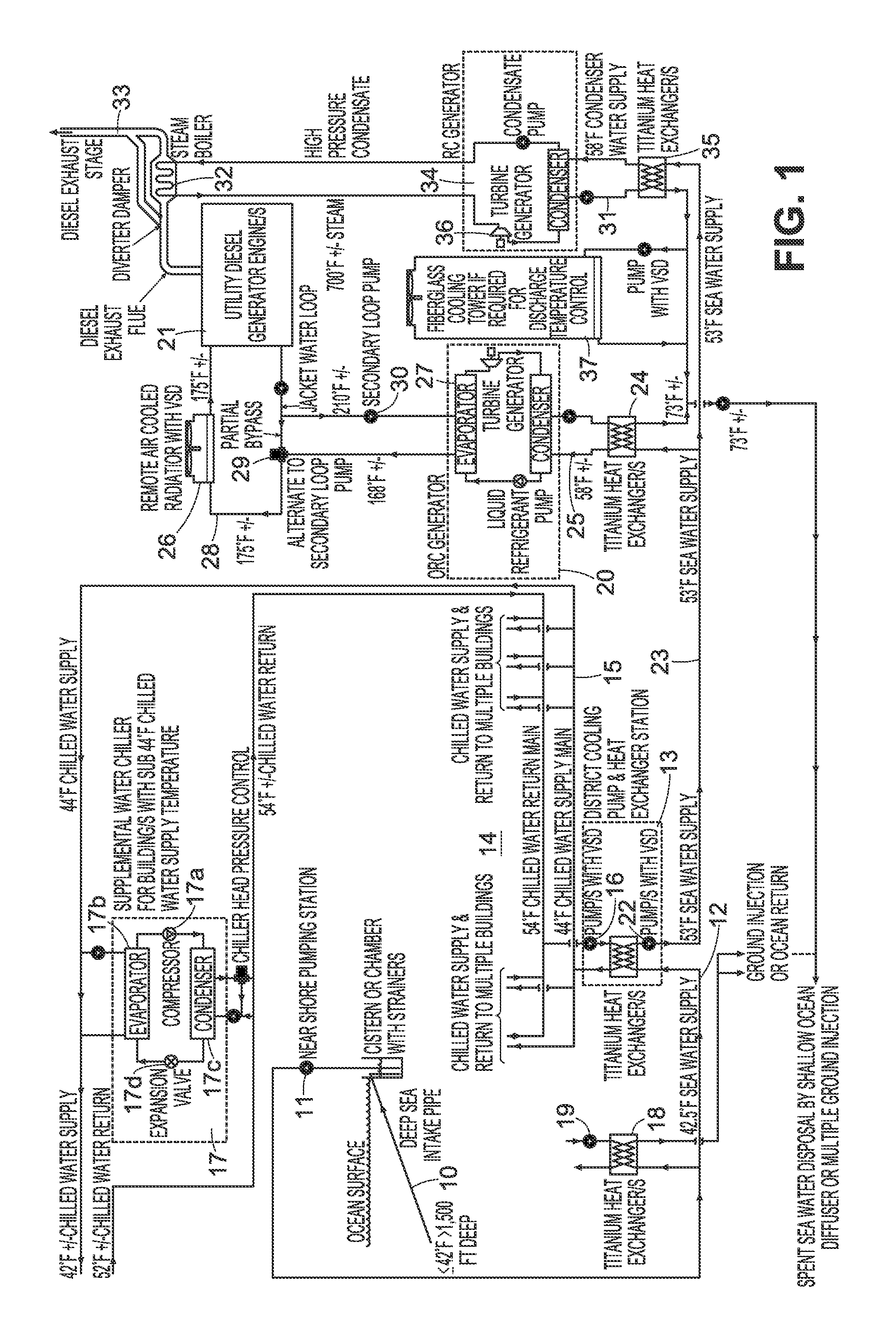Deep ocean energy system with full sea water air conditioning and utility waste heat utilization
a technology of energy system and waste heat utilization, applied in the field of air conditioning, can solve the problems of unnecessary inefficiency and cost of existing procedures, and achieve the effects of increasing the operating efficiency of the power generation system, exceeding the cost of air conditioning system operation, and efficiently extracting and using
- Summary
- Abstract
- Description
- Claims
- Application Information
AI Technical Summary
Benefits of technology
Problems solved by technology
Method used
Image
Examples
Embodiment Construction
[0009]The first described process, which is illustrated in FIG. 1, is designed to operate in areas where the air conditioning requirements are large in relation to electrical generation requirements and is designed to utilize sea water derived from the maximum depths, which may be about 1500 feet or deeper. We have named these processes Deep Ocean Energy System with Full Sea Water Air Conditioning (DOES with Full SWAC).
[0010]The initial stage of the process (Stage 1) involves using sea water air conditioning (SWAC) for a district-wide air conditioning system, instead of conventional electrically driven chillers. In general, this stage of the process is known. One or two systems are in operation worldwide, another is under construction and at least one more is in the design stage. In Stage 1 of the process, cold sea water at a temperature of 41° F.-43° F., and preferably 42° F. or lower, is pumped from the deep ocean via long suction pipes 10 to a pumping station 11 just inshore from...
PUM
 Login to View More
Login to View More Abstract
Description
Claims
Application Information
 Login to View More
Login to View More - R&D
- Intellectual Property
- Life Sciences
- Materials
- Tech Scout
- Unparalleled Data Quality
- Higher Quality Content
- 60% Fewer Hallucinations
Browse by: Latest US Patents, China's latest patents, Technical Efficacy Thesaurus, Application Domain, Technology Topic, Popular Technical Reports.
© 2025 PatSnap. All rights reserved.Legal|Privacy policy|Modern Slavery Act Transparency Statement|Sitemap|About US| Contact US: help@patsnap.com



